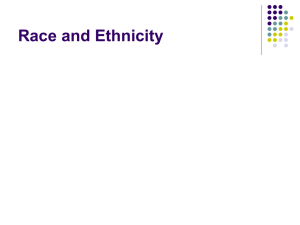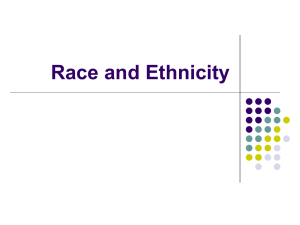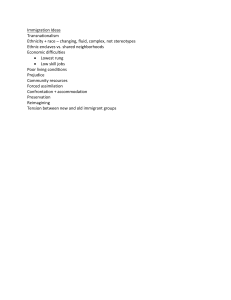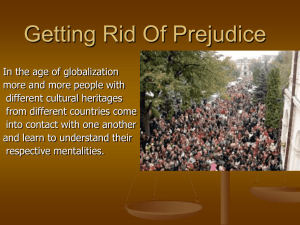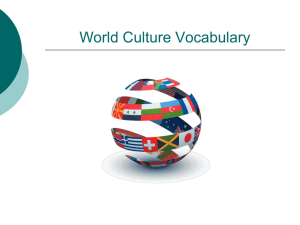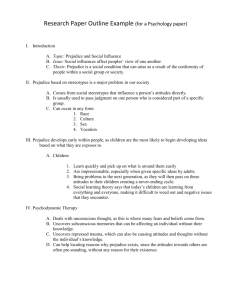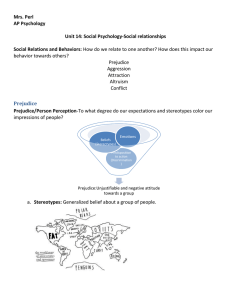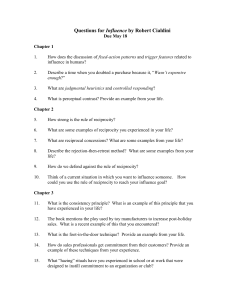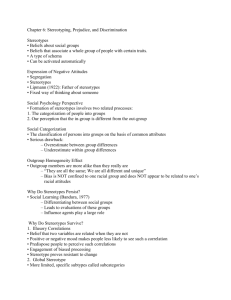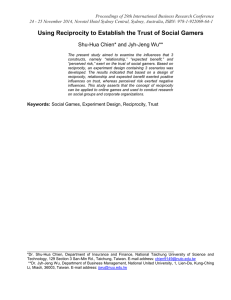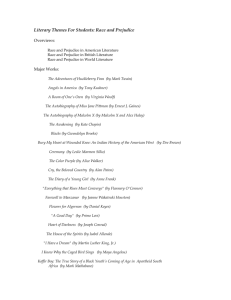Exam 1 Review Sheet - Human Conflict and Cooperation
advertisement
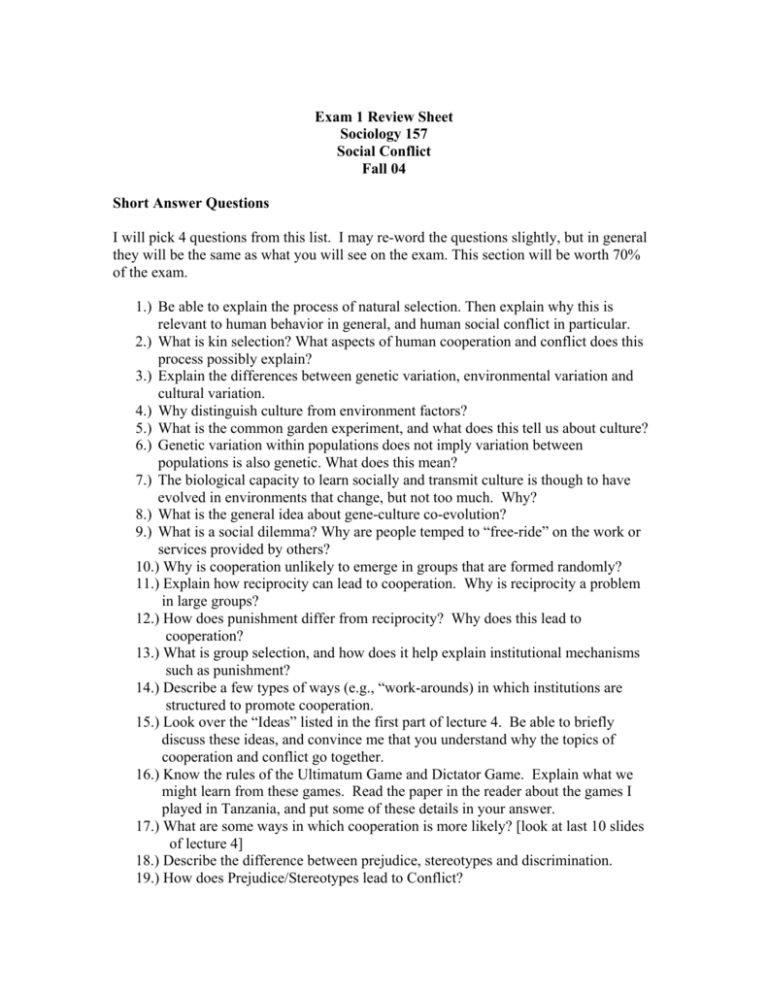
Exam 1 Review Sheet Sociology 157 Social Conflict Fall 04 Short Answer Questions I will pick 4 questions from this list. I may re-word the questions slightly, but in general they will be the same as what you will see on the exam. This section will be worth 70% of the exam. 1.) Be able to explain the process of natural selection. Then explain why this is relevant to human behavior in general, and human social conflict in particular. 2.) What is kin selection? What aspects of human cooperation and conflict does this process possibly explain? 3.) Explain the differences between genetic variation, environmental variation and cultural variation. 4.) Why distinguish culture from environment factors? 5.) What is the common garden experiment, and what does this tell us about culture? 6.) Genetic variation within populations does not imply variation between populations is also genetic. What does this mean? 7.) The biological capacity to learn socially and transmit culture is though to have evolved in environments that change, but not too much. Why? 8.) What is the general idea about gene-culture co-evolution? 9.) What is a social dilemma? Why are people temped to “free-ride” on the work or services provided by others? 10.) Why is cooperation unlikely to emerge in groups that are formed randomly? 11.) Explain how reciprocity can lead to cooperation. Why is reciprocity a problem in large groups? 12.) How does punishment differ from reciprocity? Why does this lead to cooperation? 13.) What is group selection, and how does it help explain institutional mechanisms such as punishment? 14.) Describe a few types of ways (e.g., “work-arounds) in which institutions are structured to promote cooperation. 15.) Look over the “Ideas” listed in the first part of lecture 4. Be able to briefly discuss these ideas, and convince me that you understand why the topics of cooperation and conflict go together. 16.) Know the rules of the Ultimatum Game and Dictator Game. Explain what we might learn from these games. Read the paper in the reader about the games I played in Tanzania, and put some of these details in your answer. 17.) What are some ways in which cooperation is more likely? [look at last 10 slides of lecture 4] 18.) Describe the difference between prejudice, stereotypes and discrimination. 19.) How does Prejudice/Stereotypes lead to Conflict? 20.) What are schema, and how does these lead to cognitive sources of prejudice? Review out-group homogeneity effect, own-race bias, illusory correlations, Characteristics of Efficient Stereotypes, Automatic Stereotype Activation. 21.) Describe social identity theory and the minimal group paradigm. 22.) Describe the realistic group conflict theory using the Robbers Cave experiment as an example. 23.) Be prepared to give me a description of Marxist theory. Then clearly illustrate why this is sometimes called conflict theory. In other words, what type of conflict is Marx talking about, and what does he think should be done to resolve the problem. 24.) What is anomie/strain theory? 25.) Describe relative deprivation theory. Does wealth make us happier? What are some negative outcomes of inequality? What do you think causes such problems? I expect you to read the article about money and happiness in the reader, and describe the basic argument. Be prepared to tell me if you agree or disagree with the logic in this article. 26.) What is the “basic problem” concerning human values? Can we all be equally happy, rich, or successful? 27.) Describe why humans cooperate when they compete for resources. Then describe how there can be conflict among group preferences. 28.) Describe market and plan rationality. What are the main advantages and disadvantages of each? Which type of system do you prefer? 29.) Know what is meant by conflict dynamics, escalation, de-escalation, and stalemate. 30.) Review section on social perception, and be prepared to discuss how schema influence cognitive processing. 31.) Review the basic models of conflict dynamics. 32.) Review: Desire to Punish (The Role of Anger), Negative Attitudes and Perception, Deindividuation. 33.) Describe a few events that led up to the Cuban missile crisis. Discuss how the conflict models help explain some of these events. Multiple-choice and True/False Questions [30%] I will ask you about thirty multiple-choice questions [each will be worth 1 point]. These questions will be designed to test your general knowledge of the concepts and theory discussed in lecture, as well as topics in the readings. Although knowing some of these details [examples, facts, studies, and experiments] will help you on the exam, I do not expect you to know most of these.
